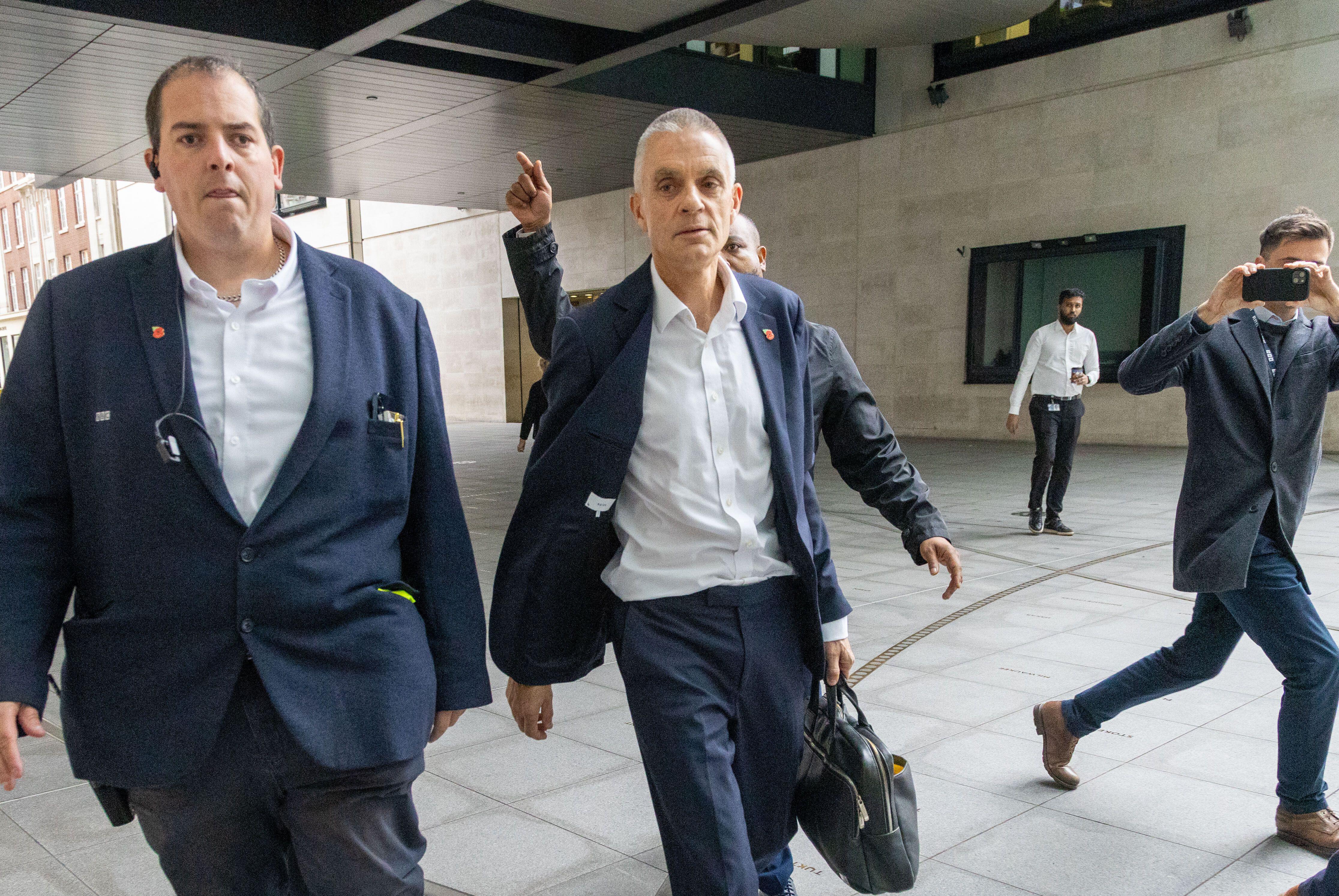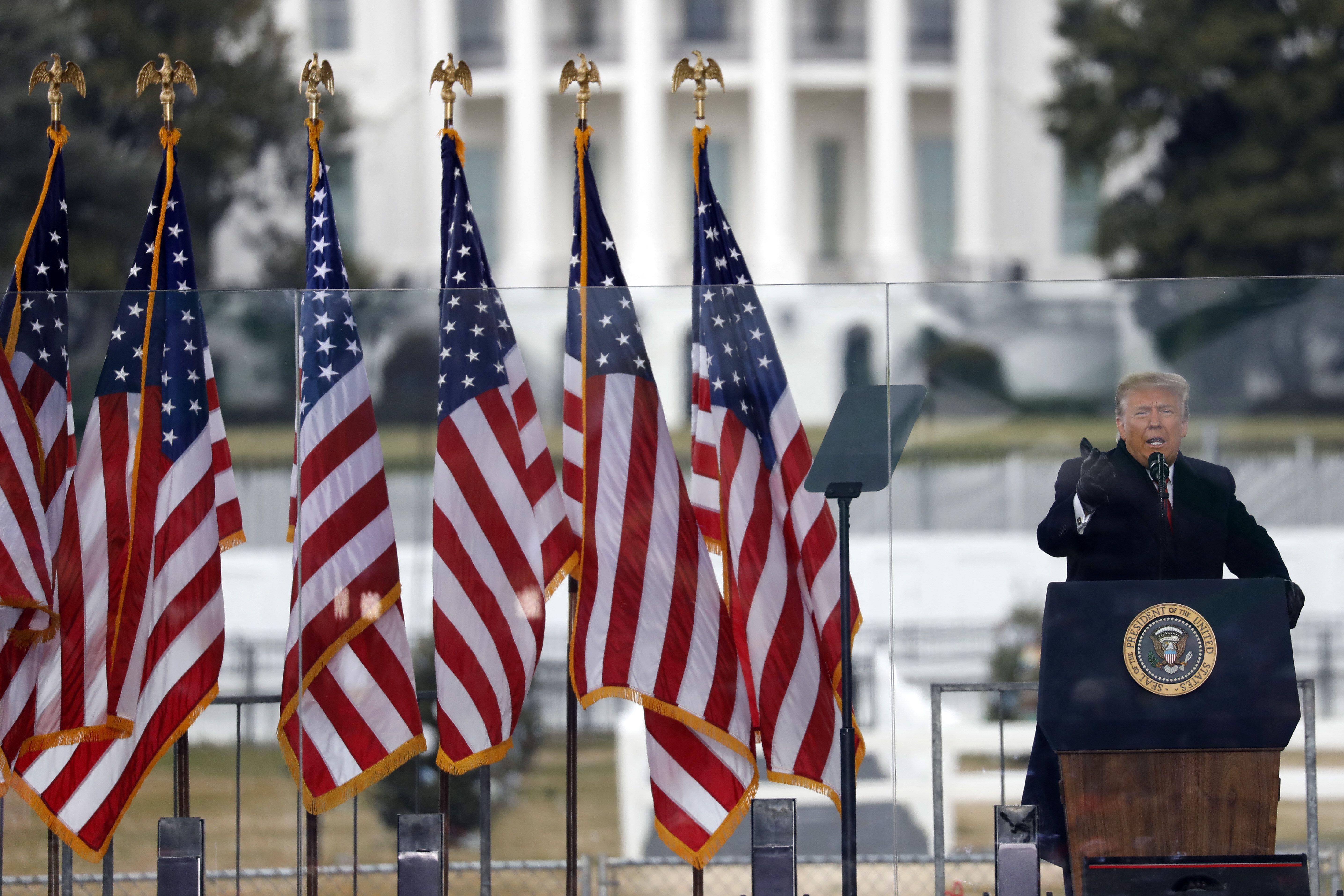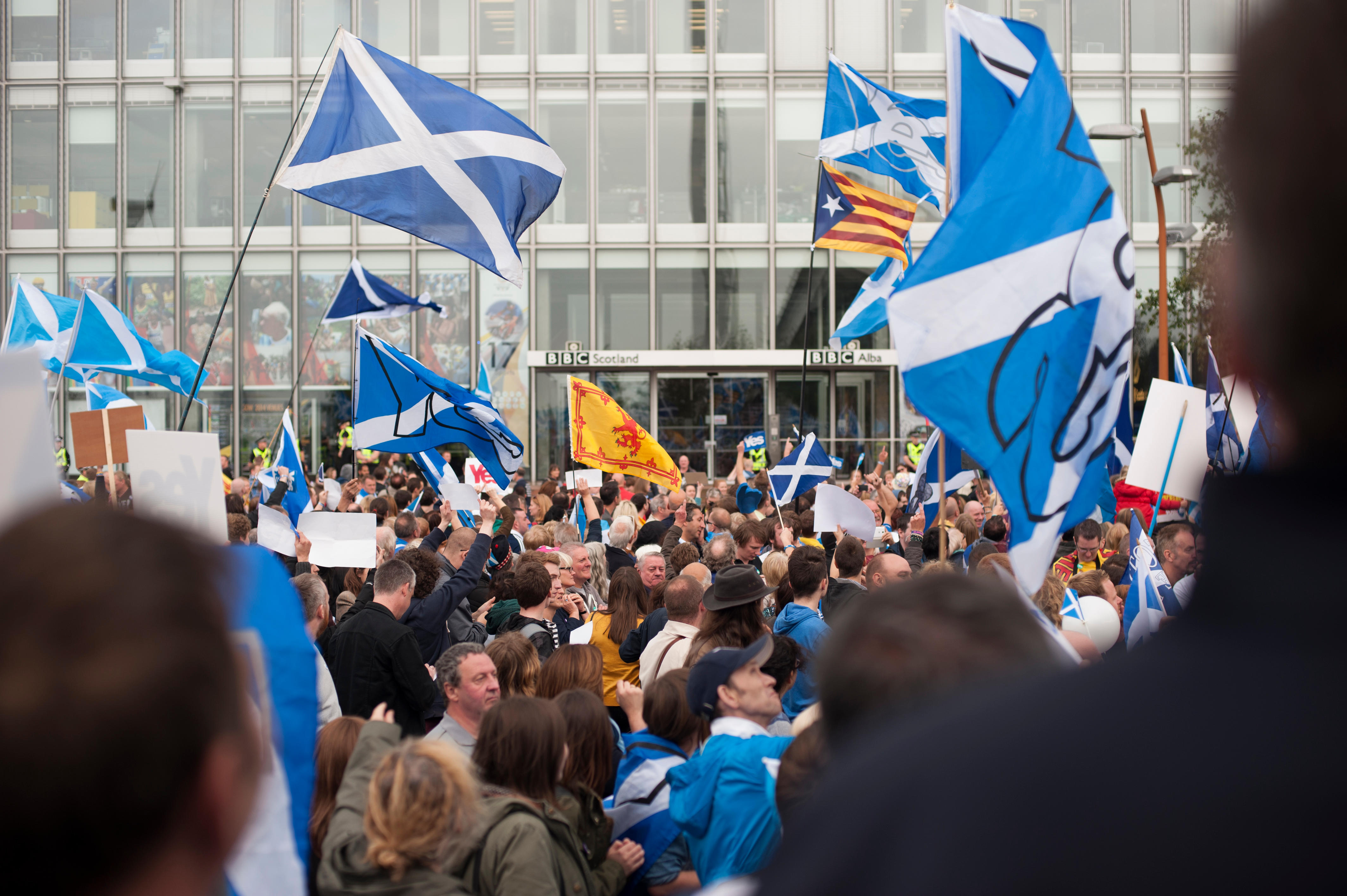Breaking the news: Despite its obvious faults, we need to protect the BBC
“In normal times you might be forgiven for dismissing [questions about the BBC] as navel gazing by folk like me who can’t resist talking about ourselves,” said Nick Robinson on the Today programme as he monologued about the corporation’s latest existential crisis. “These, though, are not normal times.” Whether listeners wanted to or not, they were forced to listen to the presenter go on at length about the situation facing his employer, as viewed by Robinson himself, before he brought on media correspondent Katie Razzall to discuss it some more.
“[The] debate about what the BBC should be like and how it should be funded is taking place at a time of deep political and cultural divisions,” Robinson said. “And that’s why it’s important to ask what has happened and what is happening at the BBC.”
Say what you want about the Beeb, but when it comes to self-flagellation it is unmatched. This time, however, it does appear to be in the grips of a genuine crisis after director general Tim Davie and the head of news, Deborah Turness, both dramatically quit. Their resignations follow a row about a Panorama documentary aired in the run-up to last year’s US presidential election, Trump: A Second Chance?, which critics accused of being one-sided. More damaging for the BBC however was an internal memo, leaked to The Telegraph, which found the programme makers had doctored a clip of Trump from the day of the 6 January Capitol riot urging his supporters to “fight like hell”.
In the edit Trump was shown to say: “We’re going to walk down to the Capitol – and I’ll be there with you. And we fight; we fight like hell.” The video had been spliced together from two different parts of the speech, which were 50 minutes apart, giving the impression that Trump had said something he hadn’t.
While Trump may not have said what Panorama showed him saying, he had challenged the result of the 2020 presidential election, urging his supporters to “fight like hell” and to “stop the steal” on 6 January 2021, and describing the vote as a “fake” and a “fraud” and Joe Biden as an “illegitimate” president. A month later, he was acquitted after a majority in the US Senate found him guilty of a single charge of ‘incitement to insurrection’ but not by the two-thirds margin needed to convict and disqualify him from ever again holding office.
Setting aside Trump’s actual role in the riot – in which five people died – the edit was nevertheless an egregious error for an organisation constantly having to shake off accusations of editorial bias.
 Outgoing director general Tim Davie faces journalists following his resignation | Alamy
Outgoing director general Tim Davie faces journalists following his resignation | Alamy
The mistake was highlighted in a 19-page dossier put together by Michael Prescott, a former independent external adviser to the broadcaster’s editorial standards committee, who left his role in June. Prescott is also reported to have raised concerns about bias in BBC Arabic’s coverage of the war between Israel and Hamas and “effective censorship” of the organisation’s coverage of the trans debate by its own LGBT specialist reporters.
According to The Telegraph, David Grossman, the standards committee’s senior editorial adviser, was asked to examine the BBC’s coverage of trans issues, reporting back that he had found shortcomings, including the way the broadcaster covered publication of the Cass Review into gender services for children and young people, and its failure to cover the story of eight Darlington nurses who went to an employment tribunal to challenge the policy of allowing a biological male who identifies as a women being allowed to use a female-only changing room.
One person who was happy with Davie’s decision to fall on his sword was Trump himself – at least initially. He later threatened to sue for $1bn, his legal team pledging to file a case in the Florida courts – one most observers think Trump would likely lose – unless the broadcaster apologised and “appropriately compensated” him for the harm caused to his reputation.
“The TOP people in the BBC, including TIM DAVIE, the BOSS, are all quitting/FIRED, because they were caught ‘doctoring’ my very good (PERFECT) speech of January 6th,” the president posted on Truth Social as if dictating for a toddler. “Thank you to The Telegraph for exposing these Corrupt ‘Journalists’,” continued Trump.
The fallout from the Trump documentary, which has now been removed from iPlayer, is just the latest chapter in what has been a difficult few years for the BBC. The organisation has gone from controversy to controversy at a time when politicians – and the broadcaster itself – has seemed determined to undermine its independence. Davie, a former deputy chairman of the Hammersmith and Fulham Conservative Association, was appointed in 2020 by a BBC board which now includes Robbie Gibb, a former director of communications for Theresa May when she was in Downing Street. John Swinney and Lib Dem leader Ed Davey have both called for Gibb to follow Davie out of the door, with the first minister describing his position as untenable for a news organisation that wants to be viewed as “impartial”.
But despite Davie’s political background, under his leadership the corporation has found itself at odds with the right-wing press and the government, most notably when its highest-paid star, Gary Lineker, was embroiled in a high-profile row in 2023 after accusing the then Conservative administration of using language “not dissimilar to that used by Germany in the 30s” on the issue of small boats. When the presenter was temporarily suspended, a 20-minute edition of Match of the Day was broadcast without pundits or commentary. Lineker later quit the show – and the BBC – earlier than planned after sharing a social media about Zionism featuring an illustration of a rat.
And earlier this year a documentary about life in Gaza had to be pulled after it emerged its 13-year-old narrator was the son of a Hamas official. That was followed by a row over the impartiality of a documentary Gaza: Doctors Under Attack which the BBC decided not to broadcast. The film, which documented the alleged torture of Palestinian doctors at the hands of the Israel Defence Forces (IDF) was later aired by Channel 4. Already reeling, the corporation was then forced to apologise for airing a set by rap duo Bob Vylan during its Glastonbury coverage in which the crowd were led in a chant of “death, death to the IDF”.
On the bigger issue of the situation in the Middle East, the BBC has been accused of bias and even antisemitism over its reporting of the conflict in Gaza, a task made difficult by Israel’s ban on foreign journalists in the territory. Responding to Davies’ resignation, Israel’s foreign ministry said it “underscores the deep-seated bias that has long characterised the BBC’s coverage of Israel”. It added: “For far too long, the BBC has spread disinformation that fuels antisemitism and radicalisation.” Davie’s resignation was also welcomed by the Russian foreign ministry, which has objected to the BBC’s coverage of the war in Ukraine.
There have been critical voices in the UK as well, including former prime minister Boris Johnson who had vowed to stop paying his licence fee unless Davie explained himself or quit. Current Tory leader Kemi Badenoch called for “heads to roll” in the week leading up to the resignation of Davies and Turness but seems less exercised about Gibb being ousted from the board. And there has criticism of the BBC and its journalism on the left too, over its coverage of Gaza but also its apparent unwillingness to ask difficult questions of Reform UK and its leader Nigel Farage. While the party’s size (it currently has just five MPs) does not seem to be a block on the number of invites its politicians receive to appear on flagship shows such as Newsnight and Question Time, there is growing disquiet over a lack of scrutiny applied to some of its policies, with the Lib Dems accusing the corporation of “copy and pasting” Reform’s press releases.
 Donald Trump addresses supporters on 6 January, 2021 | Alamy
Donald Trump addresses supporters on 6 January, 2021 | Alamy
While BBC journalists rightly covered Angela Rayner’s failure to pay enough tax, leading to the former deputy prime minister’s resignation, and Chancellor Rachel Reeves’ problems relating to the letting of her family home, it’s argued there has not been the same scrutiny of Farage’s tax affairs or his relationship with Reform’s former leader in Wales, Nathan Gill, who will be sentenced at the Old Bailey later this month after he admitted taking Russian bribes.
There have been issues too in Scotland, albeit smaller, such as the recent suspension of long-serving radio presenter Kaye Adams amid allegations of bullying. Journalist and newsreader Andrew Black was also taken off air after apparently doing a bit of doctoring of his own, this time altering a sign for the 7pm news by adding the number ‘30’ after the broadcast was delayed by half an hour due to a Scotland game. North of the border, the organisation has also faced accusations of bias from supporters of Scottish independence which pre-date the 2014 independence referendum. The aforementioned Robinson became a bête noire of the nationalists, with former first minister Alex Salmond giving his backing to Yes campaigners who staged a protest outside the BBC’s Scotland HQ in the run-up to the vote, accusing it of pro-Union bias.
There are issues too with BBC Scotland’s news coverage, a creeping infantilisation which has seen its website increasingly resemble TikTok as it prioritises shortform videos, magazine content and ‘news’ stories about popular bakeries above the public service journalism we all pay for.
And the amount we pay is not insignificant. The licence fee is currently £174.50 a year and has continued to rise even as a multitude of streaming platforms fight for the attention of the viewing public. The current Royal Charter, which sets out the BBC’s regulatory and governance arrangements, ends in 2027. Reform leader Farage, who has been paid more than £330,000 since July 2024 by GB News and who earns £4,000 a month for his Telegraph column, has said the licence fee is “wholly unsustainable”. The MP for Clacton, a regular guest on BBC shows such as Question Time even before his election to the Commons, said the corporation had been “institutionally biased for years” and needed to be “slimmed down”.
But the broadcaster has already been making cuts – annual savings which are expected to total £700m a year by 2028 – due to below-inflation increases in the licence fee which “have chipped away at our income over many years and have put serious pressure on our finances”. That includes cuts totalling £24m at BBC News in the past year, with 155 job losses. Culture secretary Lisa Nandy, who has called the licence fee “deeply regressive”, has previously ruled out the prospect the broadcaster could be funded through general taxation if the licence fee is scrapped.
The other major event on the horizon is the potential sale of ITV to Sky, a deal reported to be worth £1.6bn. If it went ahead, it would give Sky’s owner Comcast, which bought the broadcaster from Rupert Murdoch in 2018, more than 70 per cent of the TV advertising market in a rapidly changing media environment where YouTube is now the second-most popular platform in the UK after the BBC.
 Pro-independence supporters at BBC Scotland HQ at the time of 2014 referendum | Alamy
Pro-independence supporters at BBC Scotland HQ at the time of 2014 referendum | Alamy
In the days following his resignation, Davie spoke to BBC staff, telling them that mistakes had been made but that the corporation had to “fight for our journalism”. Whether the broadcaster will take that fight to a Florida courtroom against the world’s most powerful man remains to be seen, but any sort of capitulation in the way of a restitution payment (as has been done by US broadcasters threatened by Trump) would likely go down very badly with the British public. Whatever happens, it’s a fight the BBC didn’t need ahead of its charter renewal.
Like that other behemoth of British public life, the NHS, the BBC is often given a sanctified status it doesn’t deserve, not least by many of those who work for it. It makes criticism of its output politically charged and reform difficult. The organisation’s history is littered with controversies but that doesn’t mean we shouldn’t seek to protect it from those who benefit from doing it harm. At a time when tech billionaires attempt to subvert our democracy and algorithms feed us a diet of lies and misinformation, the corporation remains the UK’s most trusted news source. In journalism there’s an unwritten rule that if you’re pissing off both sides of an argument, you’re probably doing something right. For all its faults, and there are many, a taxpayer-funded broadcaster remains a force for good in a fractured and increasingly angry world. It might currently be in a bit of a mess, but we’d miss it if it was gone.
Holyrood Newsletters
Holyrood provides comprehensive coverage of Scottish politics, offering award-winning reporting and analysis: Subscribe